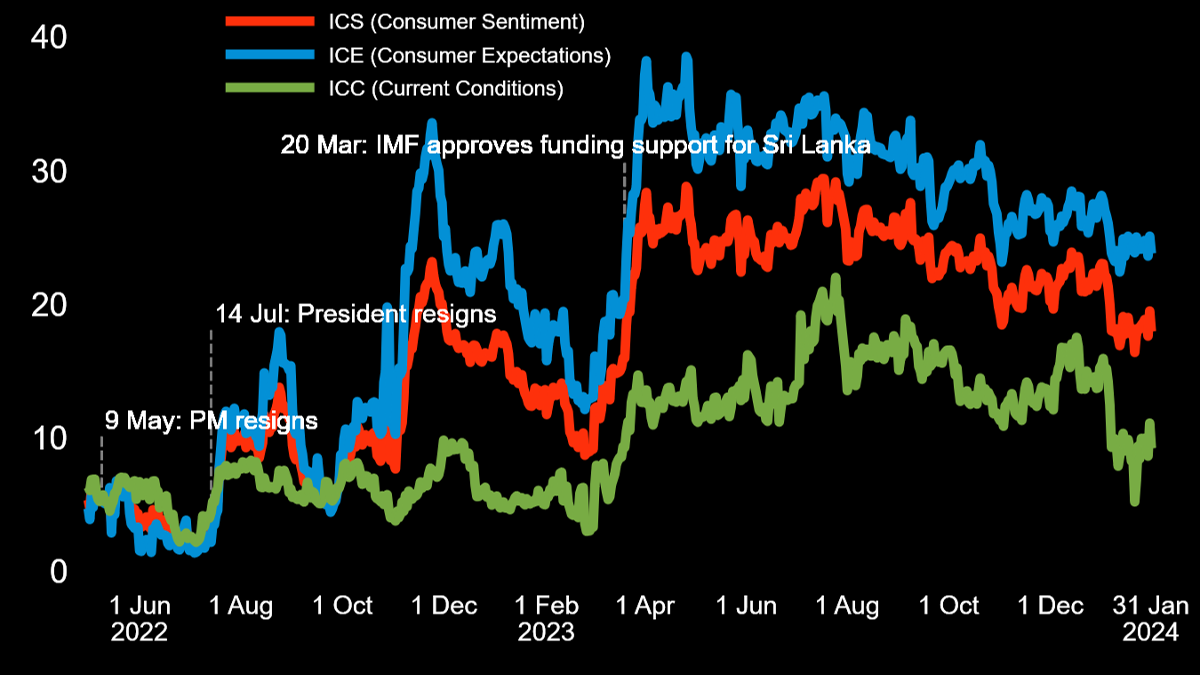Recent findings from the Institute for Health Policy (IHP) reveal a concerning trend in Sri Lanka’s consumer confidence, plummeting to its lowest levels since initiating the International Monetary Fund (IMF) program. According to data released on Friday, February 16, the Index of Consumer Sentiment (ICS) has dropped by 5 points to a mere 16 points in January, reflecting a widespread pessimism regarding personal economic standings and the national economy.
The Index of Consumer Expectations (ICE), which gauges future perceptions, also saw a significant decline of 5 points, landing at 21 points. Similarly, the Index of Current Conditions (ICC), measuring present circumstances, experienced a 5-point dip to a meagre 10 points. This continuous decline marks a nine-month downward trajectory since the initial boost following the announcement of the IMF extended fund facility (EFF) agreement in March 2023, ultimately returning to pre-agreement levels.
The IHP’s consumer confidence indices, ranging from 0 to 100, portray levels below 50 as indicative of overall pessimism. These figures are derived from 508 telephone interviews conducted in January 2024, alongside data from 14,778 adults surveyed between October 21, 2021, and January 31, 2024. The sampling methodology aligns with established practices in the United States and Europe, with responses weighted to represent the national population.
Utilizing its Sri Lanka Opinion Tracker Survey (SLOTS) platform, the IHP monitors public sentiment and well-being daily, drawing from a diverse national panel recruited through face-to-face and random dialling methods. Originally established in August 2021 to track public sentiment during the COVID-19 recovery phase, SLOTS has expanded its scope to encompass perceptions amidst the ongoing economic crisis.
Through telephone interviews, SLOTS captures real-time insights from representative samples of Sri Lankan adults, covering a wide range of topical issues. Funding for the survey has been sourced from various entities, including the Neelan Tiruchelvam Trust, the UK National Institute for Health and Care Research (NIHR), the Asia Foundation in Sri Lanka, as well as the IHP Public Interest Research Fund.


